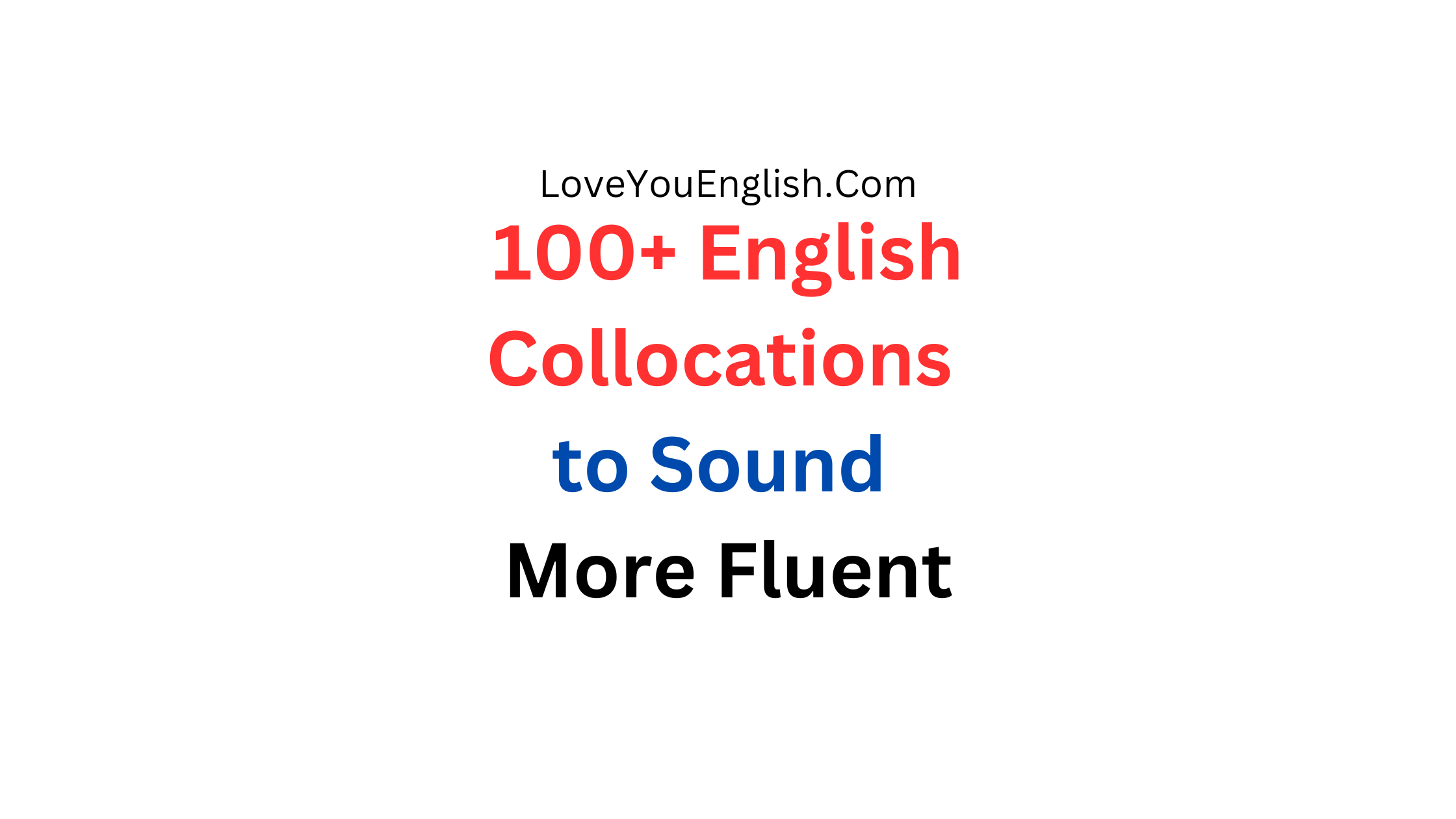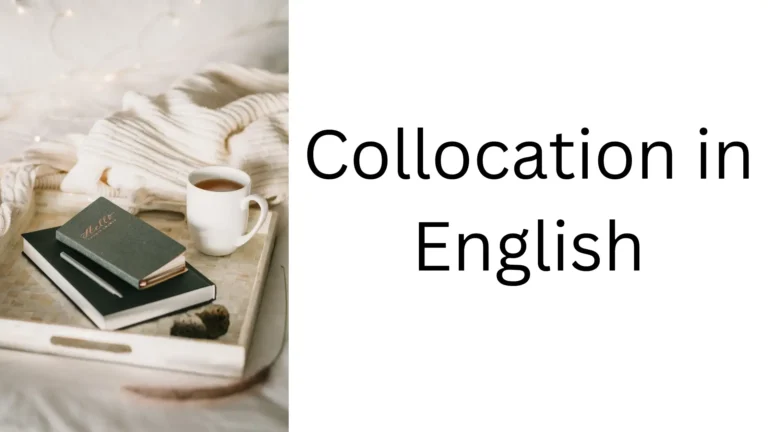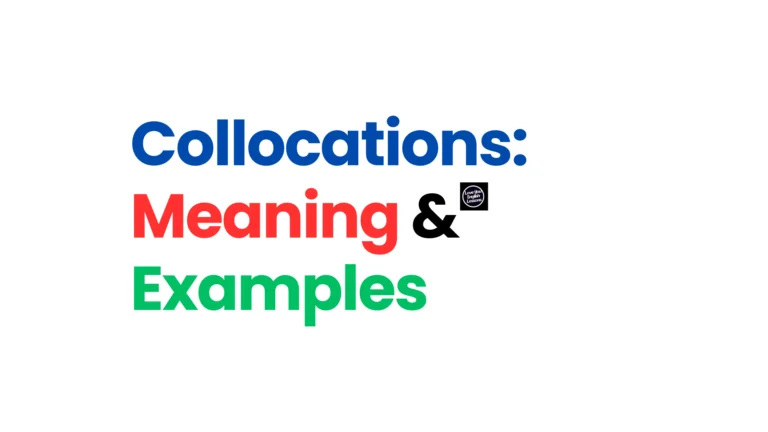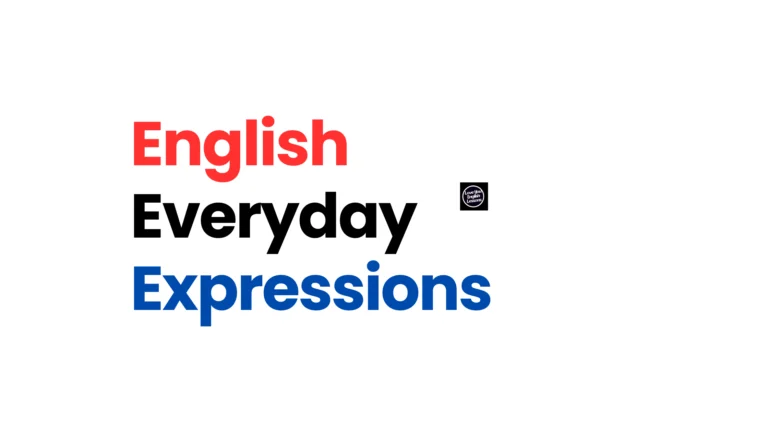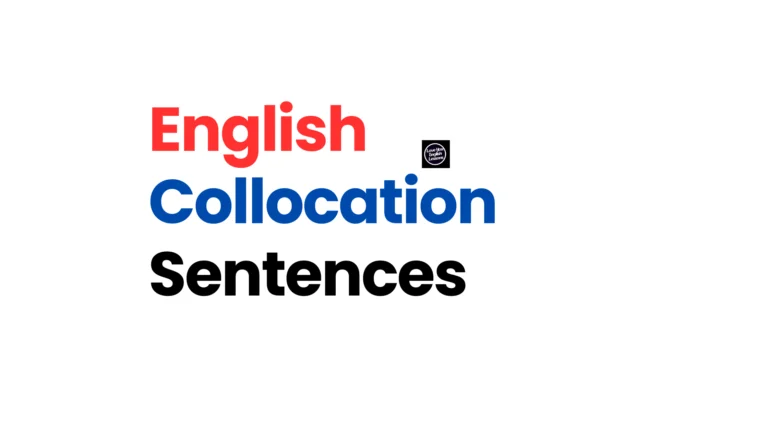100+ English Collocations to Sound More Fluent
100+ English Collocations to Sound More Fluent
Collocations are word combinations that naturally go together in English.
Native speakers use them all the time, and learning them can make your English sound more fluent and natural.
I will teach you 100+ common English collocations, these are organized into categories for easier learning.
Let’s dive in!
What Are Collocations?
Collocations are pairs or groups of words that are often used together.
For example:
- Make a decision (not “do a decision”)
- Fast food (not “quick food”)
Using the right collocations will help you sound more like a native speaker and avoid awkward mistakes.
Common Collocations in Everyday English
1. Collocations with “Make”
- Make a decision
- Make a mistake
- Make progress
- Make money
- Make an effort
- Make a plan
- Make a promise
- Make noise
- Make friends
- Make a call
2. Collocations with “Do”
- Do homework
- Do the dishes
- Do business
- Do exercise
- Do a favor
- Do your best
- Do research
- Do housework
- Do a job
- Do the laundry
3. Collocations with “Take”
- Take a break
- Take notes
- Take a chance
- Take responsibility
- Take a photo
- Take a nap
- Take care
- Take an exam
- Take a seat
- Take part
4. Collocations with “Have”
- Have fun
- Have a good time
- Have breakfast/lunch/dinner
- Have a shower
- Have a baby
- Have a conversation
- Have an idea
- Have a look
- Have a meeting
- Have an opportunity
5. Collocations with “Give”
- Give advice
- Give permission
- Give a speech
- Give a call
- Give a hand
- Give a hug
- Give an example
- Give a reason
- Give hope
- Give support
6. Collocations with “Get”
- Get ready
- Get a job
- Get married
- Get lost
- Get dressed
- Get better
- Get permission
- Get started
- Get tired
- Get wet
Collocations for Work and Study
7. Business Collocations
- Attend a meeting
- Meet a deadline
- Make a profit
- Run a business
- Close a deal
- Set a goal
- Give a presentation
- Take responsibility
- Make an appointment
- Reach an agreement
8. Academic Collocations
- Take notes
- Do research
- Write an essay
- Pass an exam
- Make a presentation
- Study hard
- Get good grades
- Give a lecture
- Enroll in a course
- Learn a language
Collocations for Daily Life
9. Travel Collocations
- Book a ticket
- Catch a train
- Miss a flight
- Take a trip
- Go sightseeing
- Pack a bag
- Stay in a hotel
- Rent a car
- Visit a place
- Buy souvenirs
10. Food and Drink Collocations
- Have a meal
- Drink water
- Eat breakfast
- Cook dinner
- Make coffee
- Order food
- Try a dish
- Taste delicious
- Go out for dinner
- Set the table
11. Health Collocations
- Stay healthy
- Catch a cold
- Break a bone
- Take medicine
- Feel sick
- Lose weight
- Gain weight
- Do exercise
- Follow a diet
- Get better
Collocations for Emotions and Relationships
12. Positive Emotions
- Feel happy
- Have fun
- Bring joy
- Share happiness
- Make someone smile
- Show gratitude
- Spread positivity
- Experience excitement
- Feel confident
- Be proud of
13. Negative Emotions
- Feel sad
- Get angry
- Lose patience
- Cause trouble
- Have doubts
- Break a promise
- Spread rumors
- Feel regret
- Suffer a loss
- Feel anxious
14. Relationship Collocations
- Make friends
- Keep a promise
- Build trust
- Have an argument
- Get along
- Spend time together
- Break up
- Fall in love
- Start a relationship
- Maintain a friendship
Collocations for Nature and Weather
15. Nature Collocations
- Watch the sunset
- Take a walk
- Enjoy the view
- Plant a tree
- Pick flowers
- Climb a mountain
- Explore the forest
- Swim in the ocean
- Protect the environment
- Save water
16. Weather Collocations
- Heavy rain
- Strong wind
- Bright sunshine
- Freezing cold
- Scorching heat
- Clear sky
- Light drizzle
- Thunderstorm warning
- Snowfall forecast
- Cloudy day
Collocations for Communication
17. Speaking Collocations
- Speak fluently
- Express an opinion
- Start a conversation
- Tell a story
- Make a joke
- Ask a question
- Give an answer
- Say hello
- Make a suggestion
- Complain about
18. Writing Collocations
- Write a letter
- Send an email
- Draft a report
- Take notes
- Keep a diary
- Edit a document
- Publish an article
- Sign a contract
- Fill out a form
- Submit an application
Why Are Collocations Important?
- Sound Natural: Using collocations helps you sound more like a native speaker.
- Improve Fluency: Collocations make it easier to speak without hesitation.
- Avoid Mistakes: Learning collocations prevents common errors.
- Build Confidence: You’ll feel more confident using the right combinations of words.
How to Learn Collocations
- Read and Listen: Pay attention to collocations in books, articles, and conversations.
- Practice: Use collocations in speaking and writing.
- Make Flashcards: Write down collocations to review regularly.
- Group by Category: Learn collocations by topic (e.g., travel, emotions).
- Use Apps: Apps like Quizlet can help you memorize collocations.
Final Thoughts
Collocations are an essential part of fluent English.
By learning and practicing these 100+ collocations, you’ll sound more natural and confident.
Remember to take your time, focus on one category at a time, and use these word combinations as often as you can.
Happy learning!

